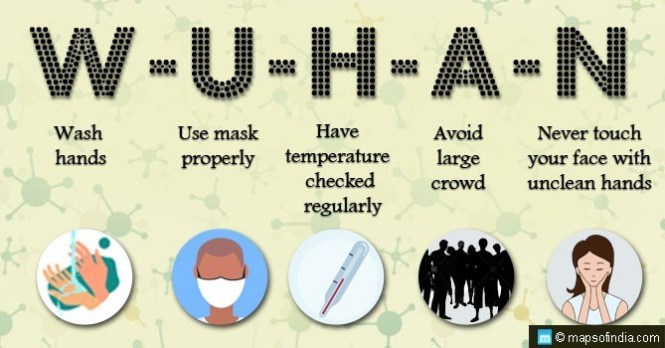The novel coronavirus, or more commonly known as 2019-nCoV, is now spreading rapidly, infecting thousands of people and becoming a threat to humanity. According to the Department of Health (DOH), there are already 101,927 people globally that is infected by the virus as of March 07. In addition, there are six confirmed cases of nCoV here in the Philippines out of 32 test results while 48 cases are still pending (as of March 07).
It is unclear how easily this virus is spreading between people. As stated by the Centers of Disease Control and Prevention on their website, there is currently no vaccine to prevent the virus from spreading nor a specific antiviral treatment recommended for it. In a case, the best way to prevent infection is to avoid being exposed to this virus. Indeed, prevention is better than cure.
“The best protection is hand washing and being mindful of contact with a person’s face,” said Dr. Eric Cioe-Pena, director of global health for Northwell Health and the Zucker School of Medicine at Hofstra/Northwell in New York.
“The most common way viruses like these are spread is from droplets, or little particles of viruses, that land on a surface that another person touches and then spreads, usually by touching their face or eating,” he added.
Click here to download DAILY LESSON LOGS
From the mapsofindia.com, they creatively made use of the word WUHAN as an acronym to illustrate five simple ways to prevent infection of the virus.

Furthermore, the World Health Organization (WHO) advises the public to follow these basic protective measures against the novel coronavirus:
Wash your hands frequently
Wash your hands frequently with an alcohol-based hand rub or soap and water.
Why? Washing your hands with an alcohol-based hand rub or soap and water kills the virus if it is on your hands.
Practice respiratory hygiene
When coughing and sneezing, cover mouth and nose with flexed elbow or tissue – discard tissue immediately into a closed bin and clean your hands with alcohol-based hand rub or soap and water.
Why? Covering your mouth and nose when coughing and sneezing prevent the spread of germs and viruses. If you sneeze or cough into your hands, you may contaminate objects or people that you touch.
Maintain social distancing
Maintain at least 1 metre (3 feet) distance between yourself and other people, particularly those who are coughing, sneezing and have a fever.
Why? When someone who is infected with a respiratory disease, like 2019-nCoV, coughs or sneezes they project small droplets containing the virus. If you are too close, you can breathe in the virus.
Click here to download DAILY LESSON LOGS
Avoid touching eyes, nose and mouth
Why? Hands touch many surfaces which can be contaminated with the virus. If you touch your eyes, nose or mouth with your contaminated hands, you can transfer the virus from the surface to yourself.
If you have fever, cough and difficulty breathing, seek medical care early
Tell your health care provider if you have traveled in an area in China where 2019-nCoV has been reported, or if you have been in close contact with someone with who has traveled from China and has respiratory symptoms.
Why? Whenever you have fever, cough and difficulty breathing it’s important to seek medical attention promptly as this may be due to a respiratory infection or other serious condition. Respiratory symptoms with fever can have a range of causes, and depending on your personal travel history and circumstances, 2019-nCoV could be one of them.
If you have mild respiratory symptoms and no travel history to or within China
If you have mild respiratory symptoms and no travel history to or within China, carefully practice basic respiratory and hand hygiene and stay home until you are recovered, if possible.
As a general precaution, practice general hygiene measures when visiting live animal markets, wet markets or animal product markets
Ensure regular hand washing with soap and potable water after touching animals and animal products; avoid touching eyes, nose or mouth with hands; and avoid contact with sick animals or spoiled animal products. Strictly avoid any contact with other animals in the market (e.g., stray cats and dogs, rodents, birds, bats). Avoid contact with potentially contaminated animal waste or fluids on the soil or structures of shops and market facilities.
Avoid consumption of raw or undercooked animal products
Handle raw meat, milk or animal organs with care, to avoid cross-contamination with uncooked foods, as per good food safety practices.
While there is only two confirmed cases of novel coronavirus here in the Philippines, it is still best to take preventive measures against the virus. As i mentioned earlier, prevention is a lot better than cure. Stay safe everyone.
READ MORE:
- #WALANG PASOK: Class Suspension on March 9 (Monday) due to COVID-19
- How to Stay Safe against Novel Coronavirus (2019-nCoV)
- Award Certificate for Notable Pupils | EOSY 2019-2020
- Schedule of End of School Year Rites for SY 2019-2020


